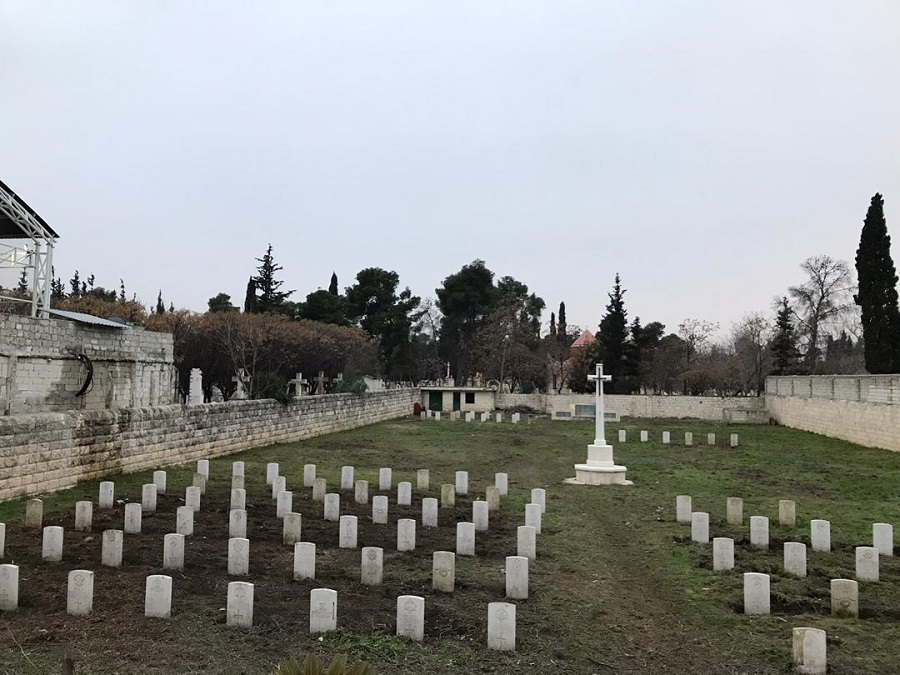
British Cemetery (CWGC)
British Cemetery (CWGC) Commonwealth War Cemetery War Heritage 1920 AD A war cemetery for Commonwealth soldiers in northern Syria. Marked by 426 marble headstones, a Cross of Sacrifice, and rose

British Cemetery (CWGC) Commonwealth War Cemetery War Heritage 1920 AD A war cemetery for Commonwealth soldiers in northern Syria. Marked by 426 marble headstones, a Cross of Sacrifice, and rose
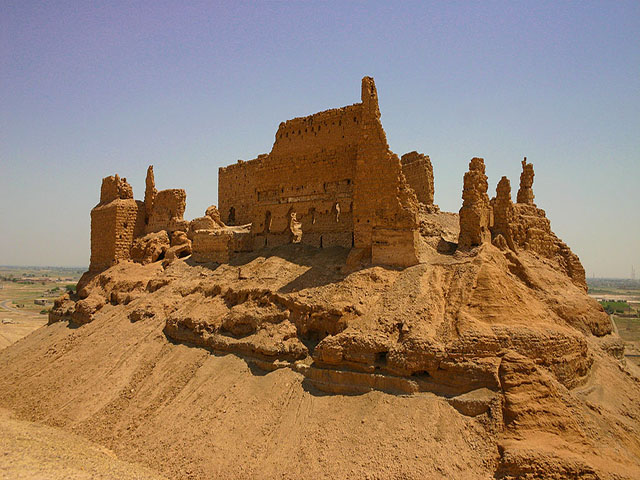
Rising majestically on the banks of the Euphrates River near the city of Al-Mayadin in eastern Syria, Qal’at al-Rahba (The Citadel of Rahba) stands as a monumental reminder of the
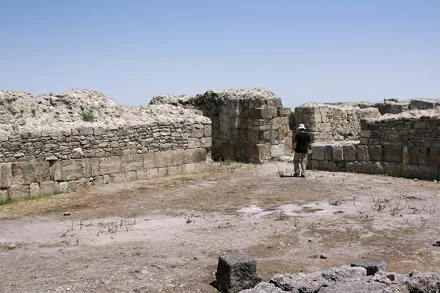
The discovery of Ugarit revolutionized archaeology and historical understanding. Remarkably, it was found by chance in 1929 when a farmer plowing his land in Minet el-Beida struck a large, intricately
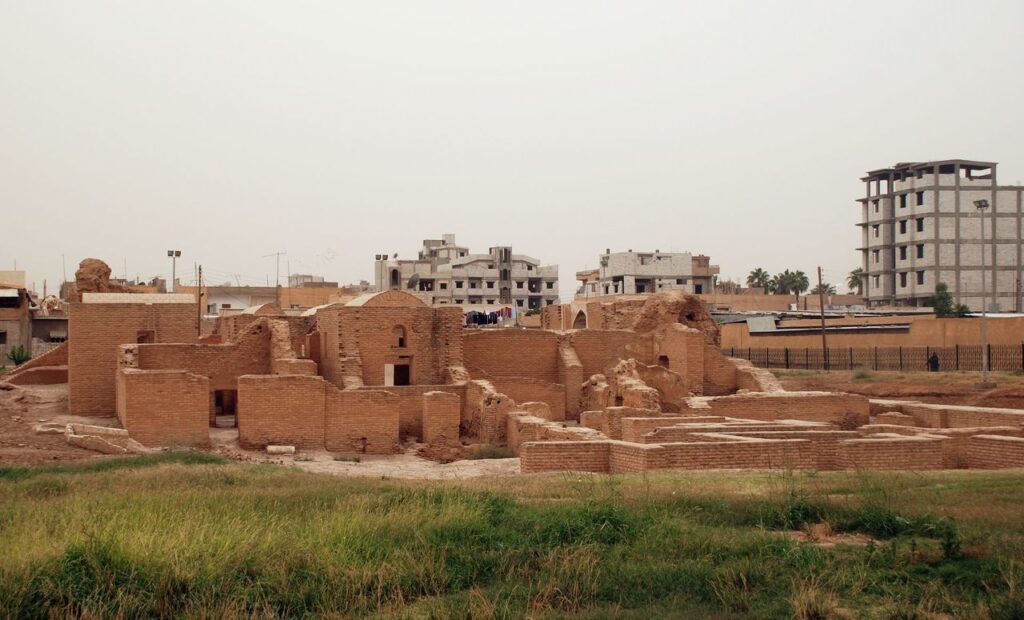
Qasr al-Banat (Palace of the Maidens) The luxurious Qasr al-Banat, located southeast of Raqqa city in northeastern Syria, is one of the most important and oldest archaeological landmarks in the
Tel Brak rises 40 meters above the plains of the Khabur River. Archaeological evidence indicates that the site began as an agricultural settlement around 4200 BCE, before evolving into a
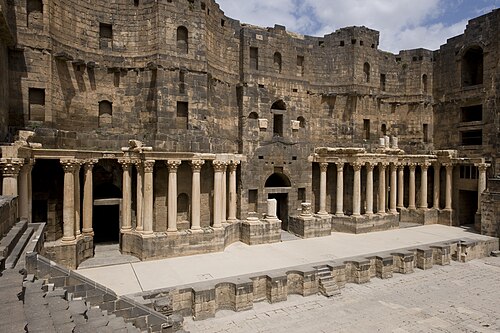
The Roman theater in Bosra, is considered one of the best-preserved Roman theaters in the world. Built from black basalt stone, it can accommodate around 17,000 spectators, making it one
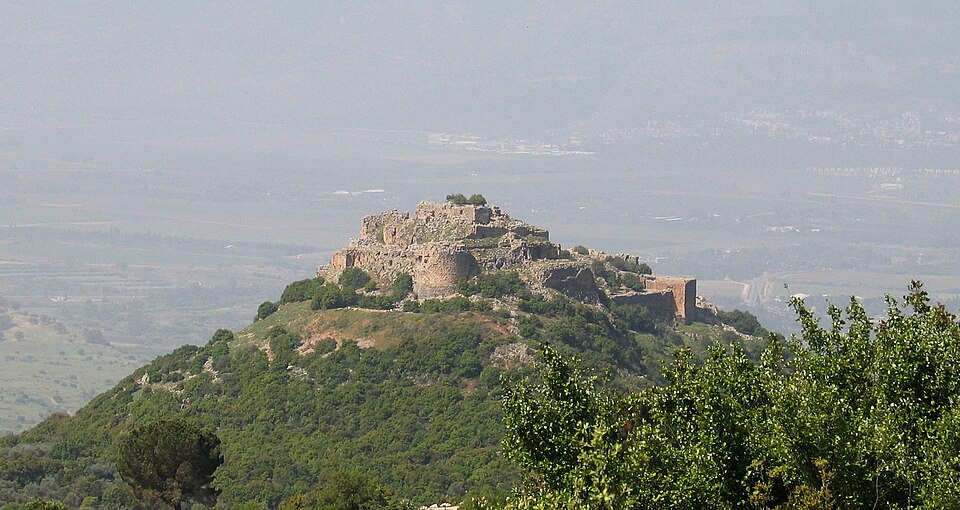
In the heart of the Syrian Golan, the fortress of Qal‘at al-Subayba stands tall atop a mountain slope, bearing silent witness to a rich and eventful history. This fortress was
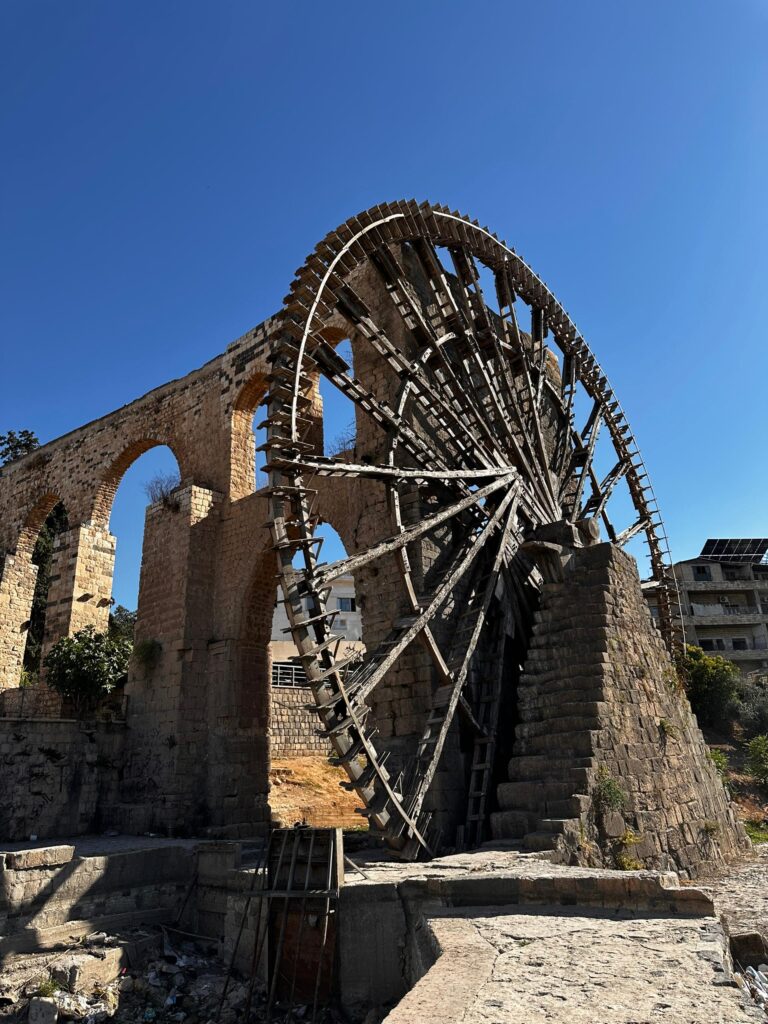
This complex comprises three adjacent Norias of varying diameters (14–18 m), constructed in the 15th century under the patronage of the influential Al-Ja’bari merchant family. A distinguishing feature is a
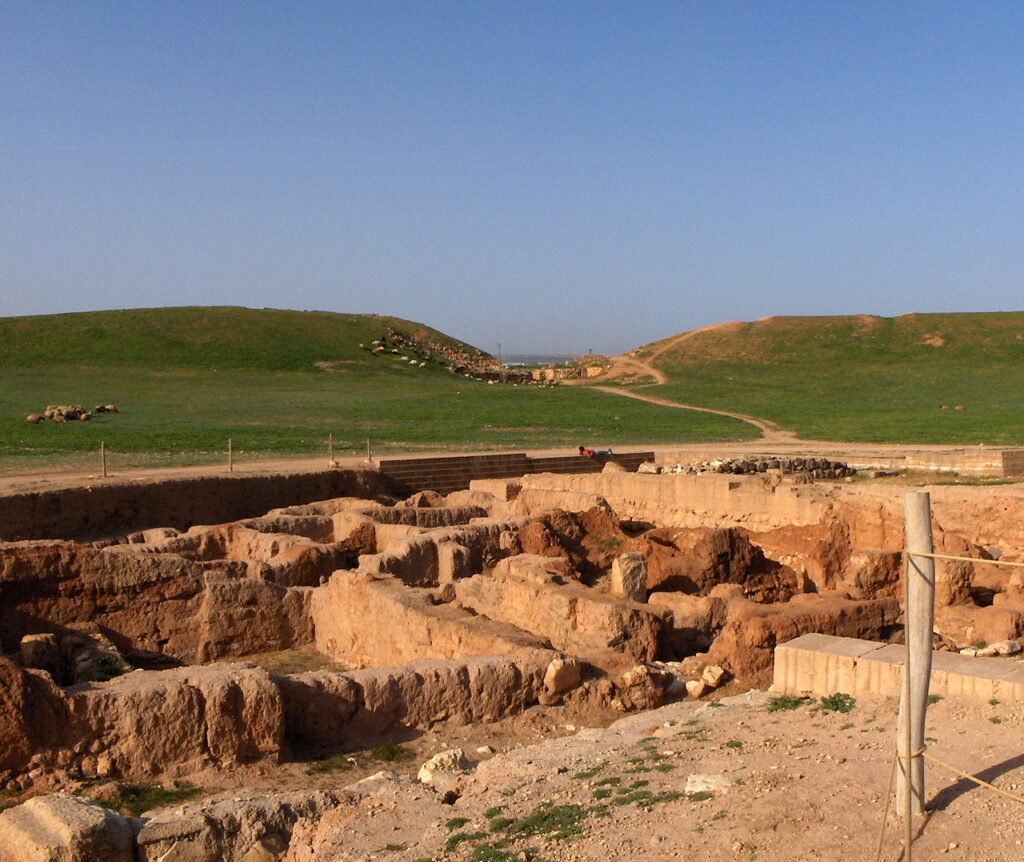
The Ancient City of Ebla (Tell Mardikh) Ebla is located atop Tell Mardikh in the eastern countryside of Idlib and represents one of the most important cultural centers of the
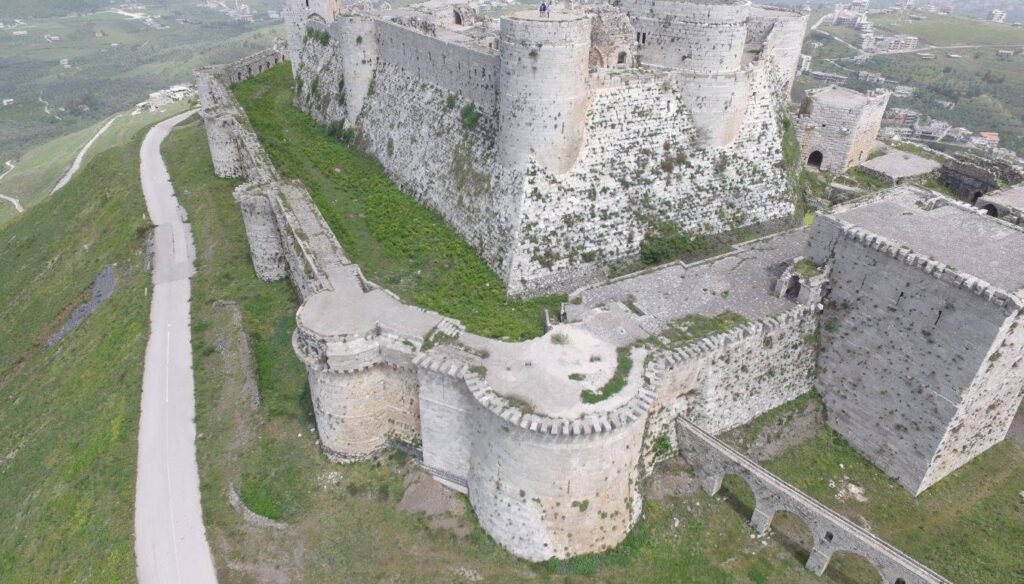
Perched on a volcanic hill overlooking the Homs coastal passage, Krak des Chevaliers was first built by the Knights Hospitaller starting in 1142 CE, becoming the most powerful Crusader fortress
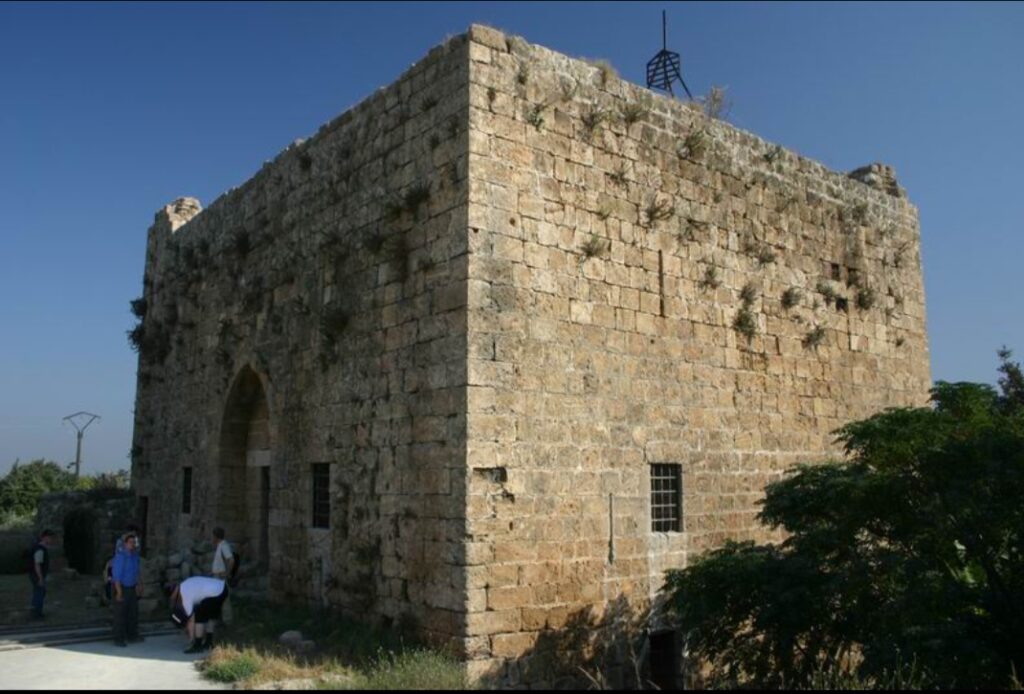
The Phoenicians, originating from the city of Sidon, established the settlement of Arwad on the island as a means of protection from external threats. They also founded a complementary settlement
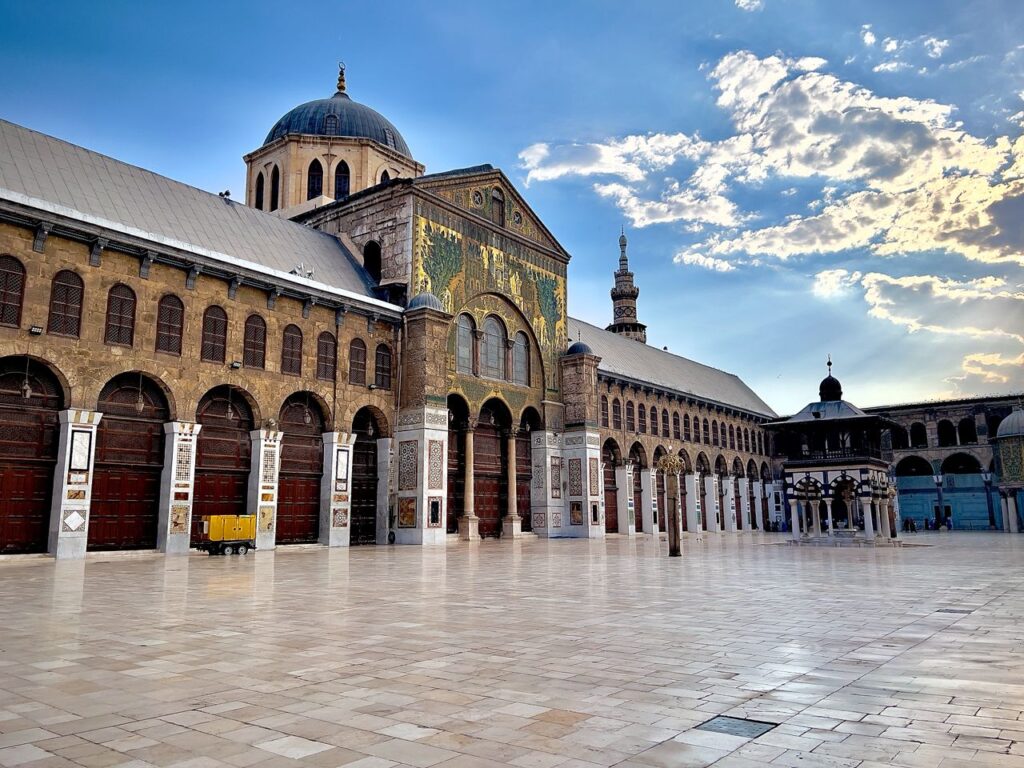
The Great Umayyad Mosque, often simply referred to as the Umayyad Mosque, is a significant Islamic mosque commissioned by the Umayyad Caliph Al-Walid ibn Abd al-Malik in Damascus. It stands
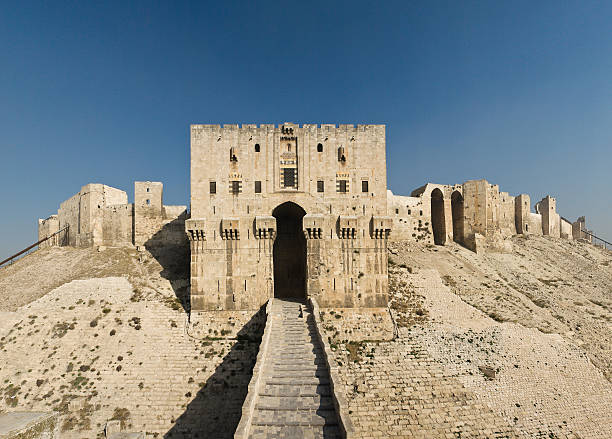
Aleppo Citadel holds within its walls a history spanning over four thousand years, though its current form was primarily shaped during the Seljuk period and subsequent eras. The initial fortifications

At one of the entrances to the old city of As-Suwayda stands the Arch of Triumph,an enduring symbol of architectural grandeur and historical depth. This ancient monument bears witness to
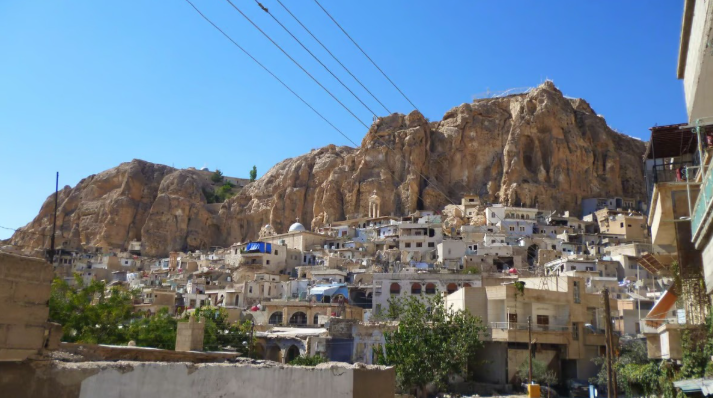
The slopes of Maaloula are lined with tightly clustered houses carved into limestone, reflecting human adaptation to harsh terrain and the continued use of the Aramaic language. The construction system
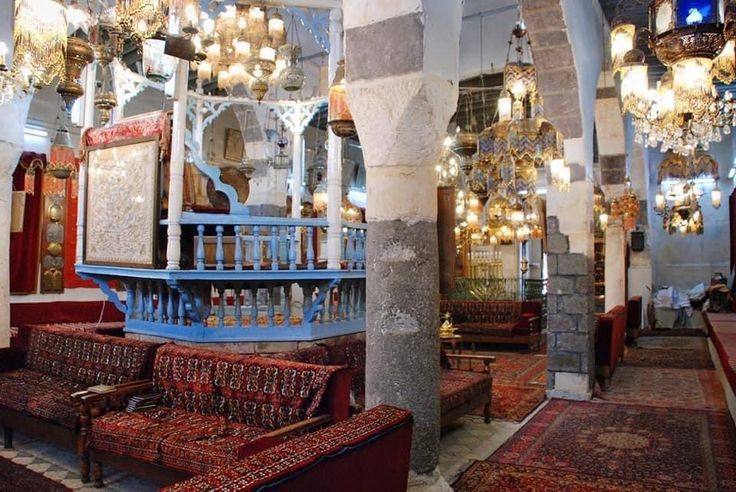
Located in the eastern suburb of Damascus, this is considered the oldest Jewish monument in Syria. Tradition dates back to 720 BCE when the Prophet Elijah found refuge in a
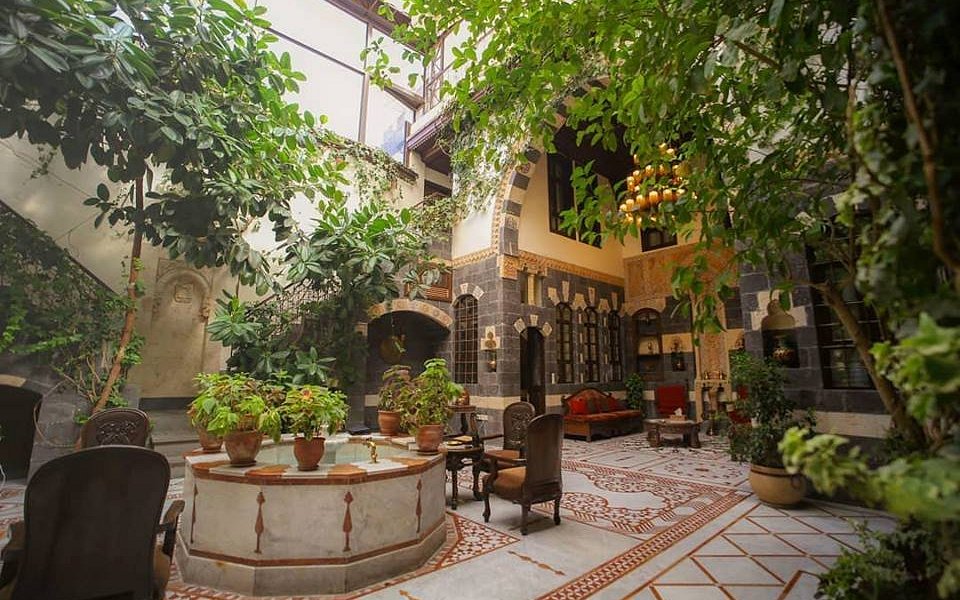
Beit Al-Wali exemplifies the successful transformation of Damascene houses into luxurious hospitality establishments that preserve the spirit of the place. The original building dates to the 18th century when the
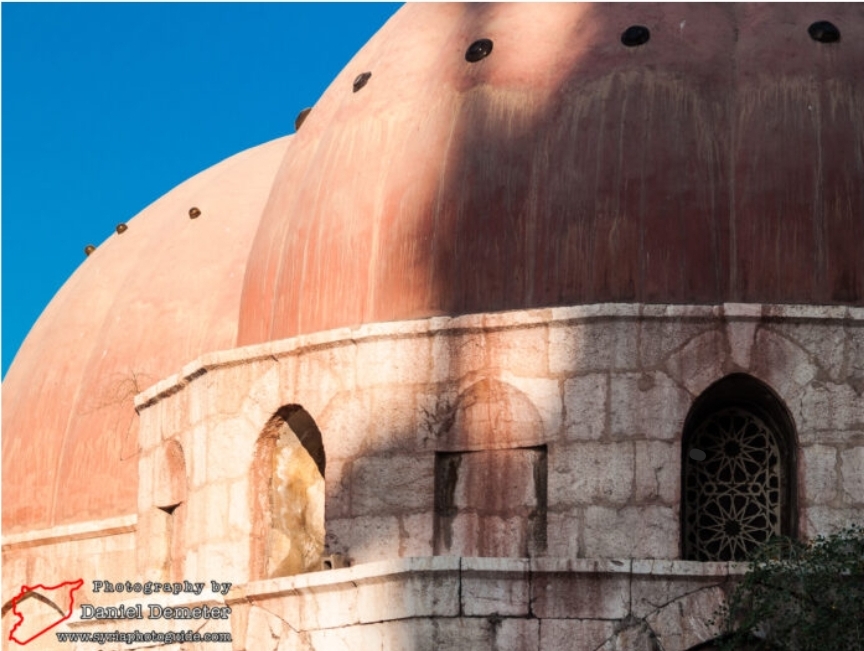
The Rukniyah School is situated on the slopes of Mount Qasioun in the Kurdish Quarter, built by Prince Rukn al-Din Mankurus in 1224 CE as a center for education and
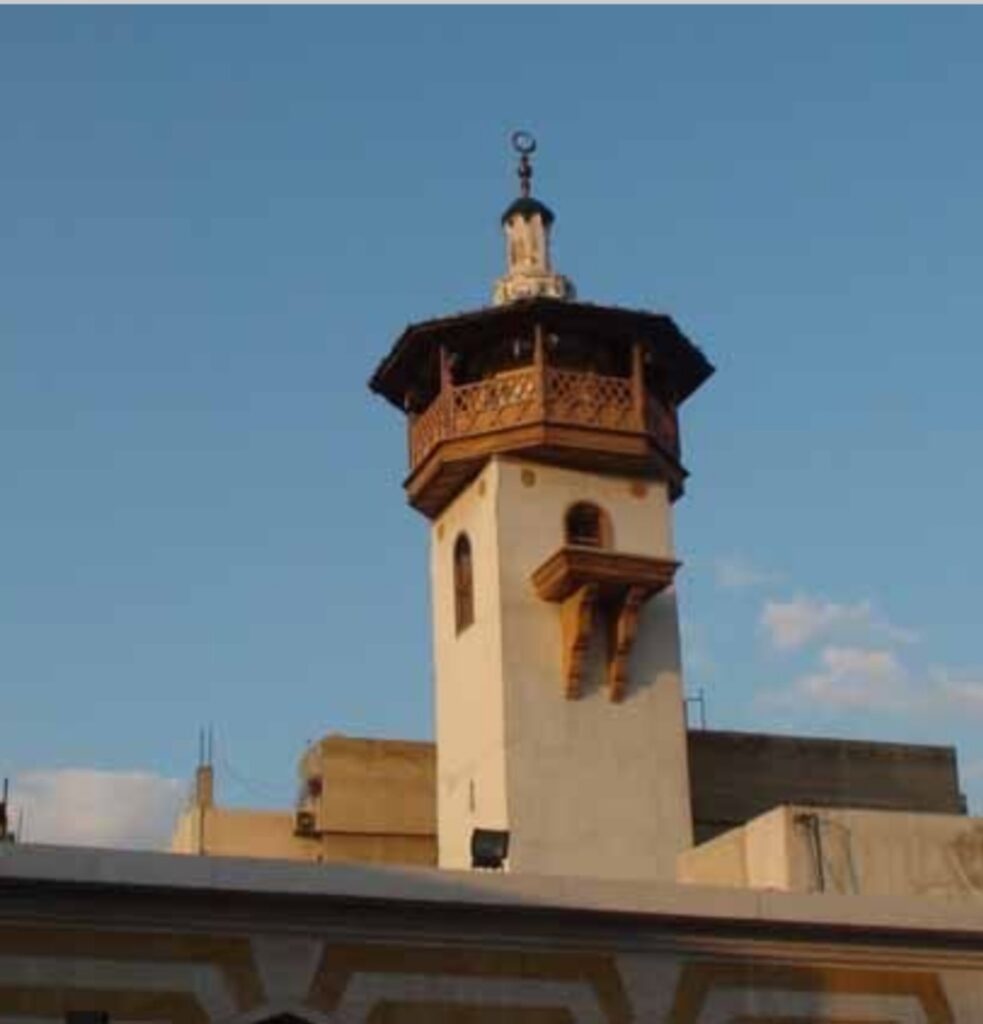
Along the pilgrimage route in the Al-Midan district, the Al-Daqqaq Mosque stands, a vibrant testament to Mamluk memory since 718 AH / 1318 CE. Founded by the judge Karim al-Din
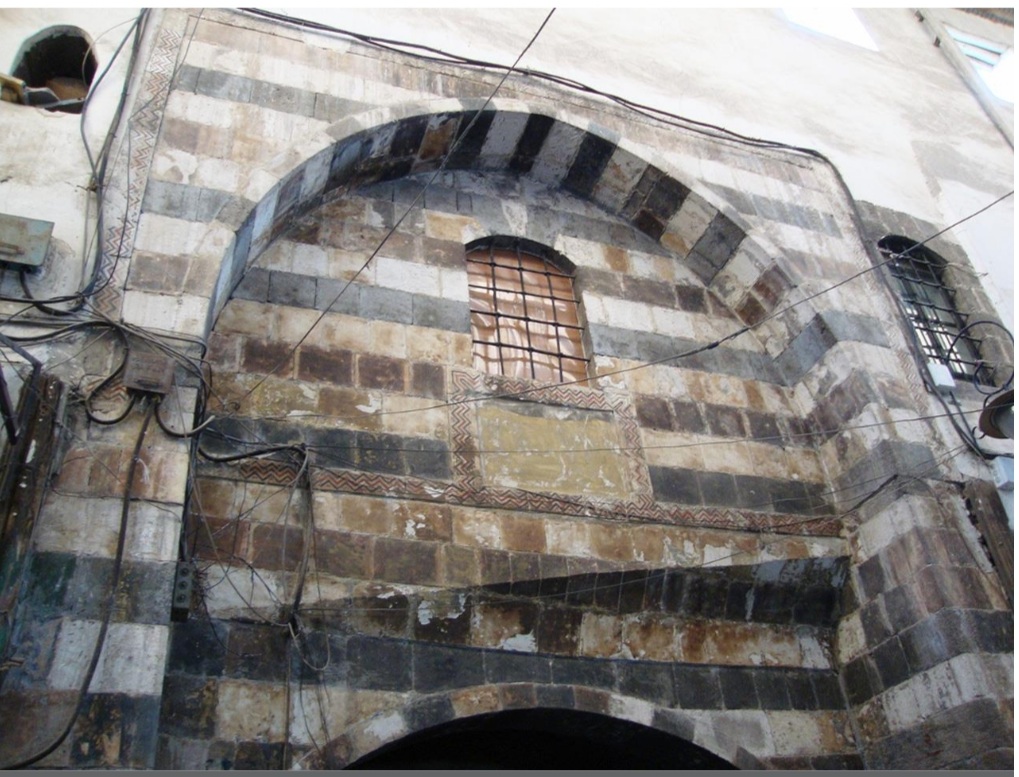
Nestled within the alleys of Souk Al-Buzuriyeh is Khan Al-Ruzz (Rice Caravanserai), constructed in the 17th century to serve rice and wheat merchants arriving from the coast. The khan comprises
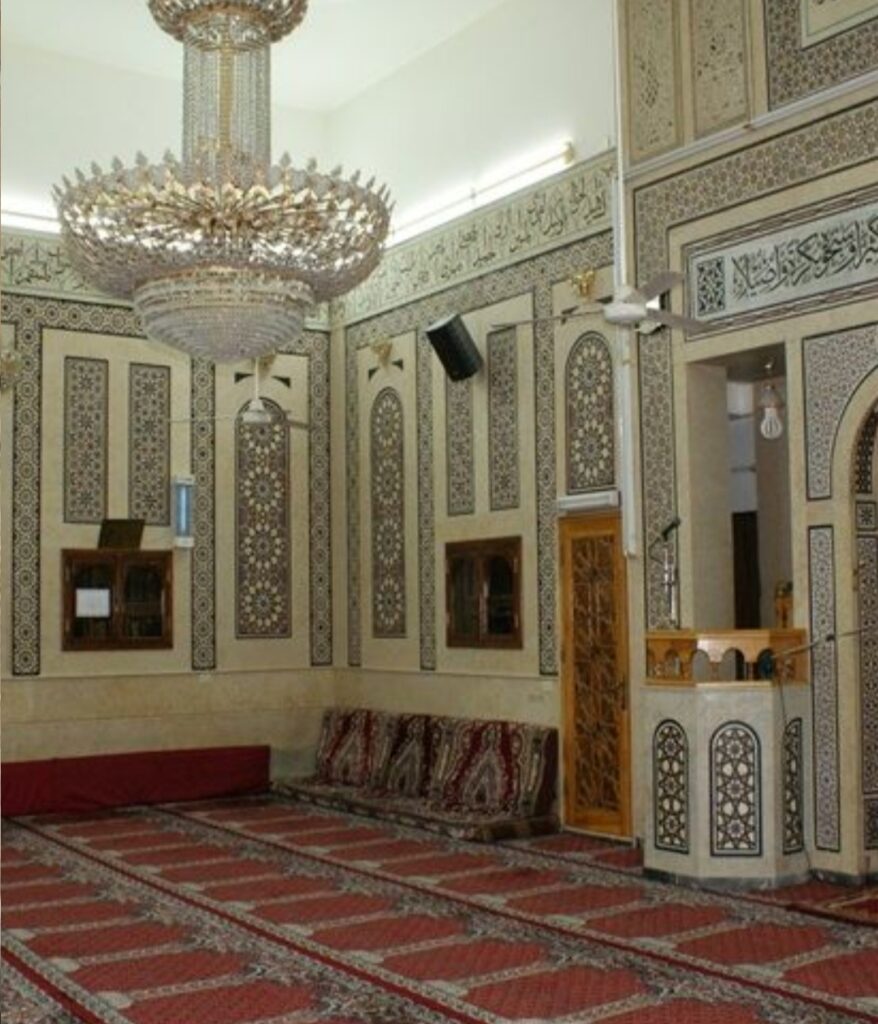
Mujahid al-Din ibn Bazan established his school in 1142 CE outside Bab Al-Faradis, becoming the nucleus of the northern district. The Zangid design showcases the simplicity of its limestone walls,

جميع الحقوق محفوظة لصالح JCI Aleppo
All rights reversed to JCI Aleppo